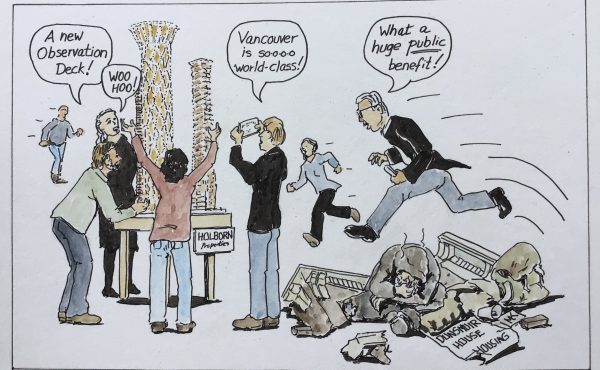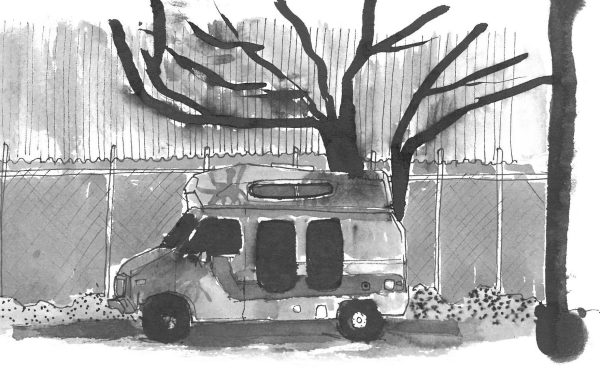
I feel a bit ignorant for being oblivious of the changes that have been happening on Granville Island over the past year. I didn’t realize it they would be happening to one of my favourite public spaces in Vancouver so soon and so quickly . As many frequenters know, Granville Island has been a public space for over 35 years, and carries remnants of Vancouver’s industrial history, to this day.
Through the establishment of the great places such as the Public Market, Emily Carr University of Art + Design, the Waterfront Theatre, Arts Umbrella and the Granville Island Breweries, Granville Island is separate – but integrated – with the rest of city life: allowing people to take advantage of all the great things that this public space has to offer. However, the word ‘public’ may no longer continue to be a part of its description.
In July 2014, there were talks of switching the ownership of Granville Island. Currently operated by the CMHC (Canadian Mortgage and Housing Corporation) – a public entity of the federal government – Granville Island may be changing ownership to Port Metro Vancouver. No final decisions have yet been made, but much could change from this seemingly simple decision.
The Mayor of Vancouver and other public figures have expressed their opposition towards the privatization of Granville Island, but what does this mean for those who enjoy the space as it currently stands?
As a recent graduate, I recall spending my days at Granville Island enjoying much of what it has to offer – from its range of arts and crafts, to food and great cuisines. I would travel there from where I lived in Burnaby, to seek artistic inspirations and purchase art supplies from Opus. I recall sitting at the docks and enjoying the waterfront view of Stanley Park and the Granville Street Bridge, while eating some freshly baked Public Market donuts from Lee’s.
I would walk around the Public Market and come across fresh local produce, seafood, meats, breads, baked goods, chocolate, teas and spices, all under one roof. Weather permiting, I would sit outside in the one of the many courtyards on the Island, and listen to local artists’ musical performances or watch other buskers display their many other talents.
Above all, I would never come across anyone looking down at a screen and walking blindly as if they have more important matters to attend to. Granville Island was – and is – a place where conversations started, eyes wandered, and curiosity ventured.
The thought of Granville Island switching ownership only dawned on me after a recent visit. Changing the ownership of the Island, and disrupting its current means of operations can deeply impact the space and its identity. If Port Metro Vancouver takes ownership of the area, I would like to hope that they will strongly consider Granville Island’s local significance and continue to allow the public to enjoy this space as it currently stands.
Many vendors fear that privatization will disrupt the current relationship between tenants and landlords. A rise in rental costs caused by switching to larger corporate vendors would drastically change the atmosphere of this great public space and the ability for local vendors to thrive.
With the Emily Carr Institute relocating to Great Northern Way and its buildings soon to be vacant in the near future, many are wondering what will happen to its space, as well. We can hope that the space will consider changes that would keep the current lively, artistic and unique vibe of Granville Island and make a positive addition to the local culture.
There have been talks of adding potential microbreweries or musical venues – which would be a plus to attract a younger crowd – but nothing has yet been confirmed. If you would like to volunteer and help Granville Island maintain its active role as a public realm and carry out its original vision for the Island, visit www.vancouverpublicspace.ca to sign up and become a part of this initiative.
This is an important local issue that extends far beyond my personal connection to this unique urban treasure and ultimately includes all the citizens of Metro Vancouver.
**
Isabelle Kim is a Vancouver-based Communications & Design B.A. from SFU, involved in past public space and place-making projects. She is an urban planning enthusiast obsessed with urban design and architecture.



